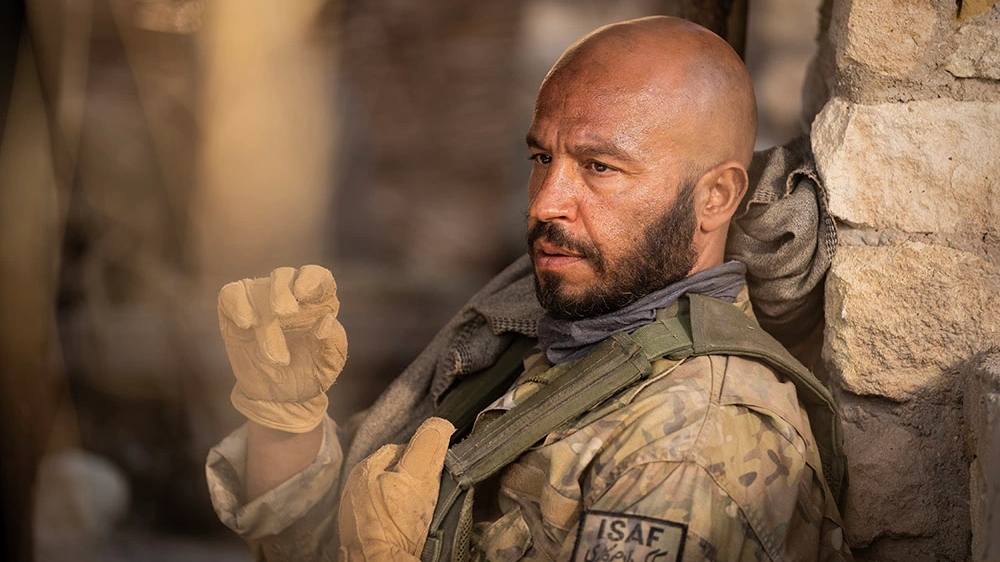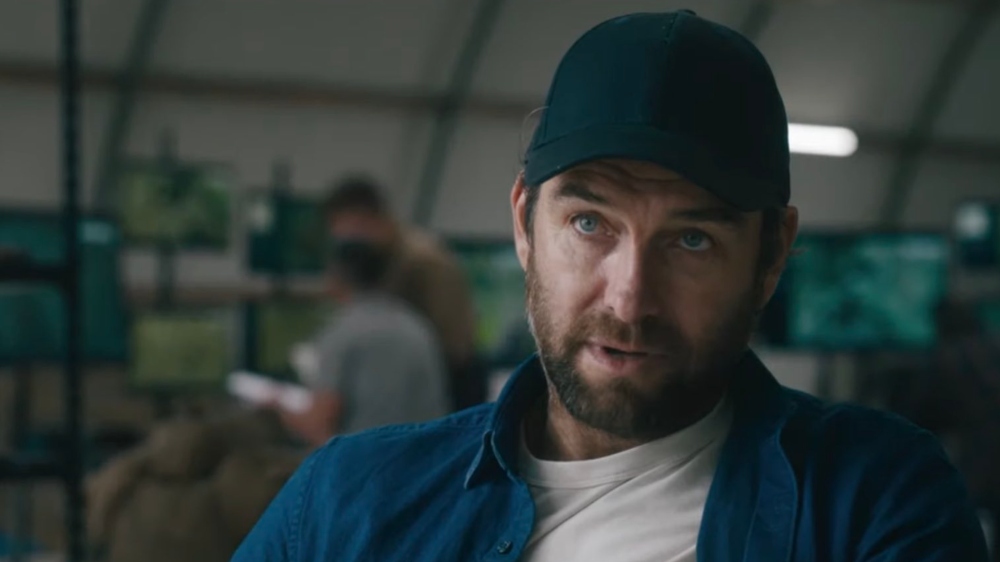It seems like every other week, I’m writing about another filmmaker whose work has come to signify a genre all its own, and this week brings Guy Ritchie’s The Covenant, an Afghanistan War drama that is a far cry from the half-serious crime movies the director made his name with.
Rather than revisit his go-to genre, Guy Ritchie tries his hand at pensive seriousness for a change. But his movie, a purported homage to Afghanis left behind by American bureaucracy, devolves into pure action that, as good as those sequences are, reveals that the director was a little out of his element here.
The Covenant, like most films desperate to demonstrate how thoughtful they are, opens with title cards that provide some background regarding America’s longest-ever conflict, one which most of its populace would much rather forget. We quickly meet U.S. Army Sergeant John Kinley (Jake Gyllenhaal), who’s on a mission in Afghanistan with a local interpreter, Ahmed (Danish actor Dar Salim), embedded in his platoon, most of which is soon wiped out in a devastating ambush. Ahmed rescues Kinley from falling into the hands of the Taliban, and during their journey across the mountains to safety, the two men develop a bond that develops, well, into an unspoken covenant.

Notably, Ahmed is not given a last name, as he is meant to symbolize Afghani war interpreters and other collaborators supporting the U.S. occupation. The screenplay, which Ritchie co-wrote with Ivan Atkinson and Marn Davies, does a decent job of not paternalizing Ahmed and crafting a complex character, albeit one who is meant to be a little generic. Where they fail is in telling this character’s story. Kinley is properly incensed that the easily-maligned U.S. bureaucracy has cut Ahmed loose after he goes into hiding from the Taliban, but the problem is that the movie quickly devolves into a straightforward action-packed war movie.
There is nothing terribly complex about Ahmed’s motivations for participating in this war beyond “avenging and saving his family.” The impossibly intricate history of the Taliban and America’s sponsorship of it, or other powers’ perpetual forays into the mountain-bound country, may have offered a more nuanced portrait of why Afghanistan and the United States found themselves at that crossroads to begin with and given greater emotional depth to The Covenant and the story of righteous indignation that Ritchie wants to tell. Instead, the film gives us explosions, bullets, and a series of improbable and illogical rescues.
The good news for below-the-line adherents is that Ritchie demonstrates his usual fealty to strong technical values, as Cinematographer Ed Wild‘s cloudy sheen is apt for the eventual dark tone of the film, Production Designer Martyn John recreates realistic Afghan mountain settings with great care, and Editor James Herbert does the heaviest of lifting during the movie’s final, action-packed third. The weakest element may be Chris Benstead‘s score, which at times struggles to be heard above the rat-tat-tat of gunfire and explosions.

The bad news, though, is that this loyalty to production values was perhaps the lure that led Ritchie astray. Though we are promised something more sophisticated than a simple shoot-’em-up war movie about a harrowing rescue operation, that is precisely what The Covenant delivers. A bevy of characters, including Kinley’s one-dimensional wife (Emily Beecham) and several equally flat American soldiers/contractors (played by Alexander Ludwig and Antony Starr), only illustrate the principle.
On the one hand, these superficially developed secondary characters exemplify that the movie’s focus is on the invader/invaded relationship between Kinley and Ahmed. That would be all well and good, except the lack of real human connections between the two men and others betrays that Ritchie is ultimately unable or unwilling to make any character anything more than a simple caricature. That works marvelously in films like Wrath of Man, which takes only its own adherence to comedic violence seriously, but it proves insufficient in what purports to be a more sophisticated drama.
Though one should surely commend Ritchie for branching out of his comfort zone and into a newer manner of storytelling, The Covenant shows that he could not quite abandon all of his past habits. Should any doubt remain, it is dissipated when Kinley makes his improbable way back to the inhospitable Afghan territory towards the end of America’s presence there. At that point, with all exploration of geopolitical and humanitarian fairness themes abandoned, the basic conceit of The Covenant is left exposed. Action for the sake of action, no matter how implausible — just like in Ritchie’s other movies.
By the time the predictable title cards flash on the screen before the end credits, you will be left sighing for what could have been — much like how most American officials felt at the ignominious conclusion of the War in Afghanistan itself.
Grade: C+
Guy Ritchie’s The Covenant is now playing in theaters nationwide courtesy of MGM and STX.





